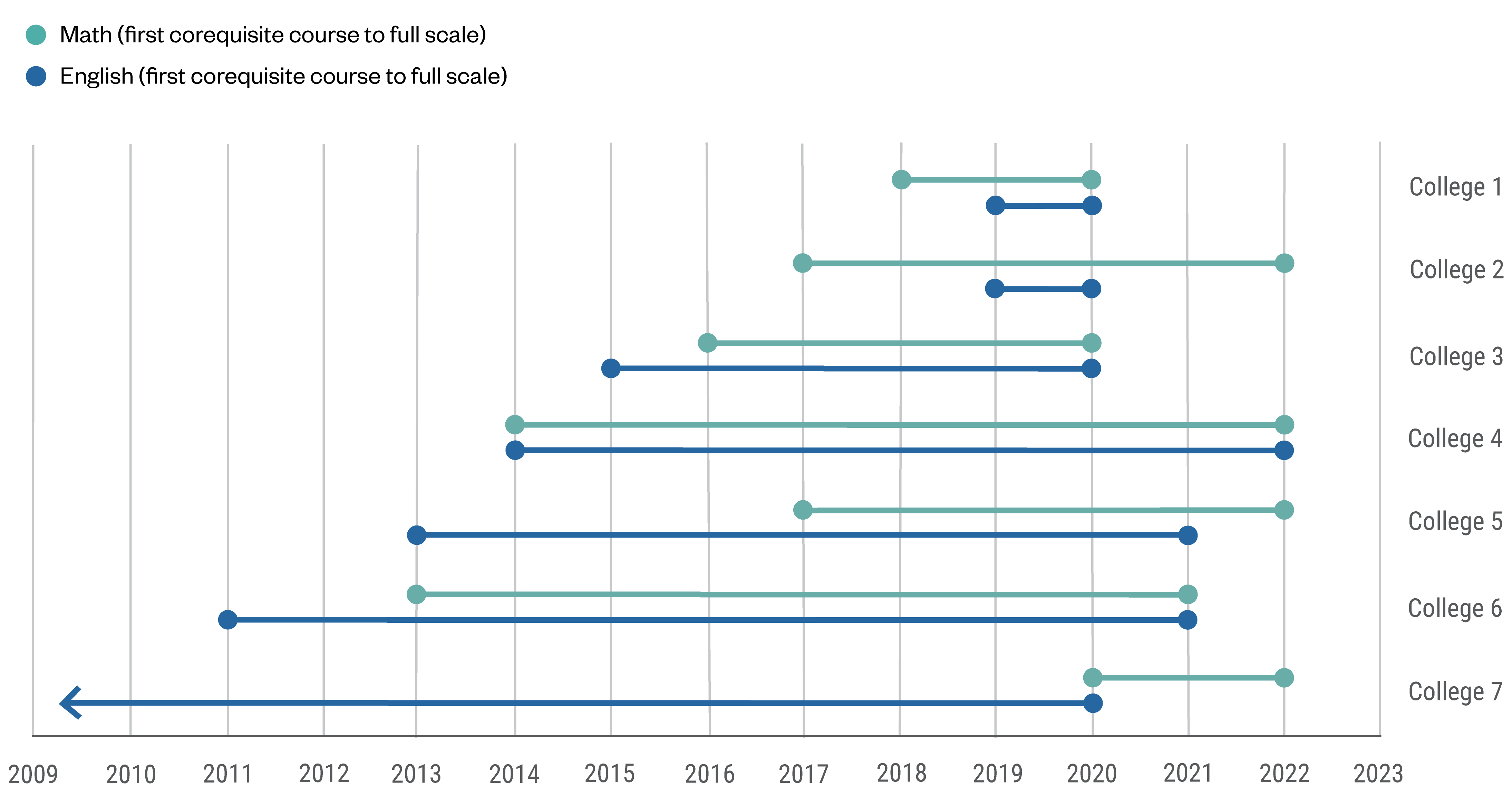Lessons on Scaling Corequisites: The City University of New York’s Transition From Prerequisite to Corequisite Academic Support
By Maggie P. Fay, Julia Raufman, Andrea Lopez Salazar, Selena Cho, Farzana Matin, and Elizabeth Kopko | November 2024

In the fall of 2019, the City University of New York (CUNY) Office of Academic Affairs (OAA) provided colleges with updated guidance for designing and delivering evidence-based corequisite courses and set a timeline for the phaseout of traditional, standalone remediation by fall 2022. This report describes findings from research exploring the first year of full-scale implementation of corequisite English and math courses in the system. Drawing on interview and focus-group data with OAA administrators and with faculty and staff at seven associate-granting CUNY colleges (five of which are community colleges), the report examines how the colleges managed the transition to fully scaled corequisite courses and structured their corequisite offerings and the implications of those choices for early implementation.
The authors find that all CUNY colleges participating in the study had fully scaled corequisite courses in math and English by spring 2023 and that for many of them, this marked the culmination of over a decade of experimentation with and expansion of corequisites. Also, due to the autonomy granted to colleges by OAA, the authors observe variation in scaling timelines and some variation in corequisite models, as well as in faculty and staff engagement.
Interviewees identified important facilitators of the scaling process, such as OAA’s mandate and timeline for scaling and financial support for course and professional development. They also identified a key challenge in understanding the implications of implementation and scaling, namely, that the co-occurrence of a new placement algorithm, the mandate, and the pandemic-induced shift to online instruction made it difficult to determine how any one of these factors contributed to changes in student success in introductory English and math courses. The report concludes with a discussion of issues to consider when scaling corequisite courses.
Key Findings
Colleges themselves decided how best to design courses: Faculty and staff designed and continued to improve courses to reflect their campus context and the needs of their students.
While the level of buy-in for corequisite courses varied across disciplinary affiliations and institutional roles, English faculty overall seemed more engaged in and supportive of corequisite reforms than math faculty.
Challenges for faculty teaching corequisite courses included the teaching of more content in less time, the greater investment in course planning, and the need to serve students with wide-ranging levels of proficiency.
Timeline of the Implementation of Corequisite Courses

